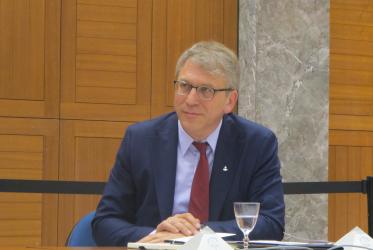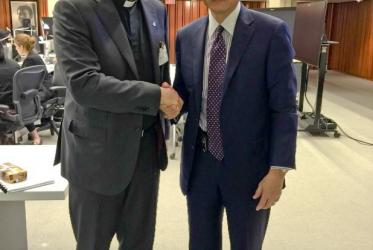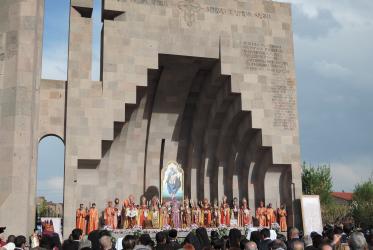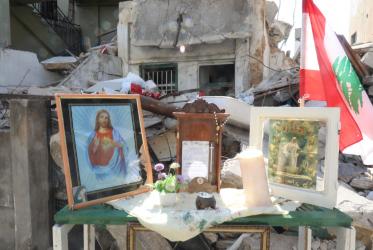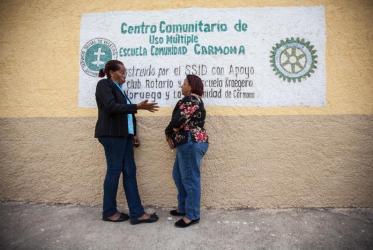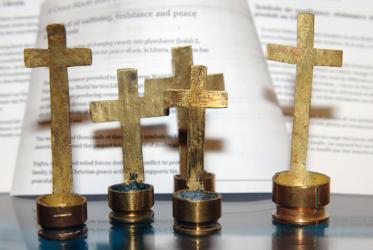Displaying 461 - 480 of 546
Killer Robots? Moral questions pervade UN conference
23 April 2015
Church leaders address statelessness in Dominican Republic
03 February 2015
Christians around the world pray for unity
22 January 2015
The new Arms Trade Treaty: a life-saving gift this Christmas
19 December 2014
WCC welcomes Cuba-US reconciliation
18 December 2014
Momentum builds for ban on nuclear weapons
16 December 2014
Advent protests in New York City
16 December 2014


